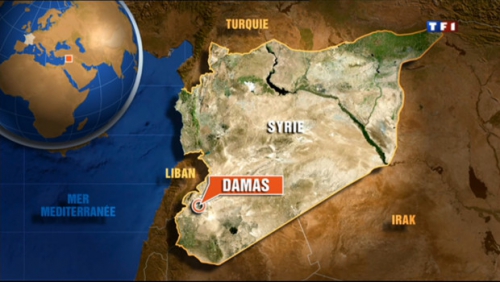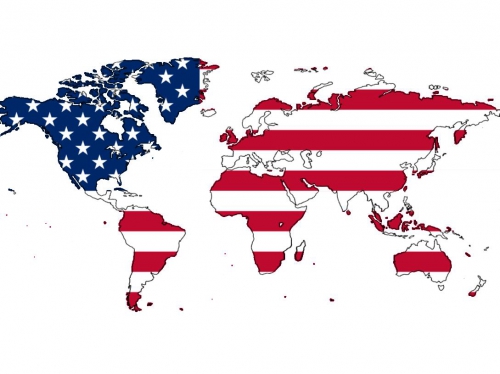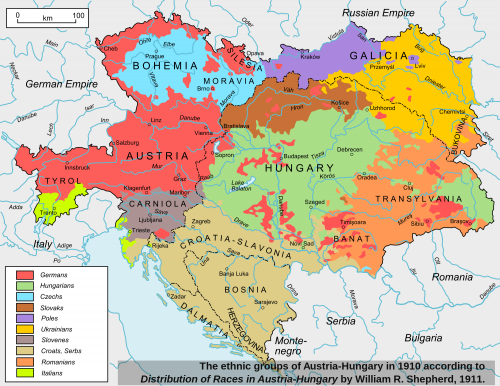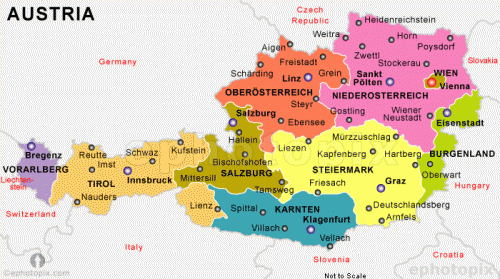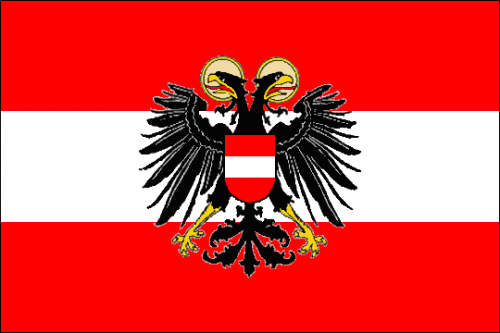The American Empire has been long in the making. A green light was given in 1990 to finalize that goal. Dramatic events occurred that year that allowed the promoters of the American Empire to cheer. It also ushered in the current 25-year war to solidify the power necessary to manage a world empire. Most people in the world now recognize this fact and assume that the empire is here to stay for a long time. That remains to be seen.
Empires come and go. Some pop up quickly and disappear in the same manner. Others take many years to develop and sometimes many years to totally disintegrate. The old empires, like the Greek, Roman, Spanish and many others took many years to build and many years to disappear. The Soviet Empire was one that came rather quickly and dissipated swiftly after a relatively short period of time. The communist ideology took many decades to foment the agitation necessary for the people to tolerate that system.
Since 1990 the United States has had to fight many battles to convince the world that it was the only military and economic force to contend with. Most people are now convinced and are easily intimidated by our domination worldwide with the use of military force and economic sanctions on which we generously rely. Though on the short term this seems to many, and especially for the neoconservatives, that our power cannot be challenged. What is so often forgotten is that while most countries will yield to our threats and intimidation, along the way many enemies were created.
The seeds of the American Empire were sown early in our history. Natural resources, river transportation, and geographic location all lent itself to the development of an empire. An attitude of “Manifest Destiny” was something most Americans had no trouble accepting. Although in our early history there were those who believed in a powerful central government, with central banking and foreign intervention, these views were nothing like they are today as a consequence of many years of formalizing the power and determination necessary for us to be the policeman of the world and justify violence as a means for spreading a particular message. Many now endorse the idea that using force to spread American exceptionalism is moral and a force for good. Unfortunately history has shown that even using humanitarian rhetoric as a justification for telling others what to do has never worked.
Our move toward empire steadily accelerated throughout the 20th century. World War I and World War II were deadly for millions of people in many countries, but in comparison the United States was essentially unscathed. Our economic power and military superiority steadily grew. Coming out of World War II we were able to dictate the terms of the new monetary system at Bretton Woods as well as the makeup of all the international organizations like NATO, the United Nations, and many others. The only thing that stood in America’s way between 1945 and 1990 was the Cold War with the Soviet Union. Significant events of 1990 sealed the fate of the Soviet Empire, with United States enjoying a green light that would usher in unchallenged American superiority throughout the world.
Various names have been given to this war in which we find ourselves and is which considered necessary to maintain the empire. Professor Michael Rozeff calls it the “Great War II” implying that the Great War I began in 1914 and ended in 1990. Others have referred to this ongoing war as “The Long War.” I hope that someday we can refer to this war as the “The Last War” in that by the time this war ends the American Empire will end as well. Then the greatness of the experiment in individual liberty in our early history can be resumed and the force of arms can be replaced by persuasion and setting an example of how a free society should operate.
There are several reasons why 1990 is a significant year in the transition of modern day empires. It was a year that signaled the end of the USSR Empire and the same year the American Empire builders felt vindicated in their efforts to assume the role of the world’s sole superpower.
On February 7, 1990 the Central Committee of the Communist Party of the Soviet Union met and ceded its monopoly political power over its empire. This was followed in a short period of time with the breakup of the Soviet system with 15 of the 17 republics declaring their independence from Moscow. This was not a total surprise considering the fact that the Soviets, in defeat, were forced to leave Afghanistan in February 1989. Also later that year, on November 9, 1989, the Berlin wall fell. Obviously the handwriting was on the wall for the total disintegration of the Soviet system. The fact that the Communist Party’s leaders had to concede that they no longer could wield the ominous power that the Communist Party exerted for 73 years was a seminal event. None of this could have been possible without significant policy changes instituted by Mikhail Gorbachev after his assuming power as president in 1985, which included Glasnost and Perestroika—policies that permitted more political openness as well as significant economic reforms. These significant events led up to the Soviet collapse much more so than the conventional argument that it was due to Ronald Reagan’s military buildup that forced the Soviets into a de facto “surrender” to the West.
The other significant event of 1990, and not just a coincidence, was the “green light” message exchanged between April Glaspie and Saddam Hussein on July 25, 1990. Though the details of this encounter have been debated, there is no doubt that the conclusion of it was that Saddam Hussein was convinced that the United States would not object to him using force to deal with a dispute Iraq had with Kuwait. After all, the US had just spent eight years aligning itself with him in his invasion and war with the Iranians. It seemed to him quite logical. What he didn’t realize was the significance of the changes in the world powers that were ongoing at that particular time. The Soviets were on their way out and the American Empire was soon to assert its role as the lone super power. The US was anxious to demonstrate its new role.
When one reads the communications between Washington and Iraq, it was not difficult to believe that a green light had been given to Saddam Hussein to march into Kuwait without US interference. Without this invasion, getting the American people to support a war with Iraq would have been very difficult. Before the war propaganda by the US government and the American media began, few Americans supported President Bush’s plans to go to war against an ally that we assisted in its eight-year war against Iran. After several months of propaganda, attitudes changed and President Bush was able to get support from the US Congress, although he argued that that was unnecessary since he had obtained a UN resolution granting him the authority to use his military force to confront Saddam Hussein. The need for Constitutional authority was not discussed.
US ambassador April Glaspie was rather explicit in her comments to Saddam Hussein: “we have no opinion on Arab – Arab conflicts, like your border disagreement with Kuwait.” The US State Department had already told Saddam Hussein that Washington had “no special defense or security commitments to Kuwait.” It’s not difficult interpreting conversations like this as being a green light for the invasion that Hussein was considering. Hussein had a list of grievances regarding the United States, but Glaspie never threatened or hinted about how Washington would react if Hussein took Kuwait. Regardless, whether it was reckless or poor diplomacy, the war commenced. Some have argued that it was deliberate in order to justify the beginning of the United States efforts in rebuilding the Middle East – a high priority for the neoconservatives. Actually whether the invasion by Saddam Hussein into Kuwait was encouraged or permitted by deliberate intentions or by miscalculations, the outcome and the subsequent disaster in Iraq for the next 25 years was a result of continued bad judgment in our dealing with Iraq. That required enforcing our goals with military intervention. The obvious failure of this policy requires no debate.
On August 1, 1990, one week after this exchange between ambassador Glaspie and Saddam Hussein, the invasion of Kuwait by Iraq occurred. Immediately following this attack our State Department made it clear that this invasion would not stand and President Bush would lead a coalition in removing Iraqi forces from Kuwait. On January 17, 1991, that military operation began. The forced evacuation of Iraqi troops from Kuwait was swift and violent, but the war for Iraq had just begun and continues to this day. It also ushered in the climactic struggle for America’s efforts to become the official and unchallenged policeman of the world and to secure the American Empire.
President Bush was not bashful in setting the stage for this clearly defined responsibility to assume this role since the Soviet Empire was on the wane. A very significant foreign policy speech by Bush came on September 11, 1990 entitled, “Toward a New World Order.” This was a clear definition of internationalism with United States in charge in the tradition of Woodrow Wilson and Franklin D Roosevelt. In this speech there was a pretense that there would be Russian and United States cooperation in making the world safe for democracy—something that our government now seems totally uninterested in. Following the speech, the New York Times reported that the American left was concerned about this new world order as being nothing more than rationalization for imperial ambitions in the middle 1980s. Obviously the geopolitics of the world had dramatically changed. The green light was given for the American hegemony.
This arrogant assumption of power to run the world militarily and to punish or reward various countries economically would continue and accelerate, further complicating the financial condition of the United States government. Though it was easy for the United States to push Hussein back into Iraq, subsequent policy was destined to create havoc that has continued up to the present day. The sanctions and the continuous bombing of Iraq were devastating to the infrastructure of that country. As a consequence it’s been estimated that over 500,000 Iraqis died in the next decade, many of them being children. Yet there are still many Americans who continue to be mystified as to why “they – Arabs and Muslims – hate us.” By the end of 1991, on Christmas Day, the final blow to the Soviet system occurred. On that date Gorbachev resigned and the Soviet flag was lowered for the last time, thus officially ending the Soviet Empire. Many had hoped that there would be “a peace dividend” for us since the Cold War was officially ended. There’s no reason that could not have occurred but it would have required us to reject the notion that it was our moral obligation and legal responsibility to deal with every crisis throughout the world. Nevertheless we embarked on that mission and though it continues, it is destined to end badly for our country. The ending of the Soviet Empire was a miraculous event with not one shot being fired. It was a failed system based on a deeply flawed idea and it was destined to fail. Once again this makes the point that the use of military force to mold the world is a deeply flawed policy. We must remember that ideas cannot be stopped by armies and recognize that good ideas must replace bad ones rather than resorting to constant wars.
It should surprise no one that a policy endorsing the use of force to tell others how to live will only lead to more killing and greater economic suffering for those who engage in this effort, whether voluntarily or involuntarily. Twenty five years have passed since this green light was given for the current war and there’s no sign that it will soon end. So far it has only emboldened American political leaders to robustly pursue foreign interventionism with little thought to the tremendous price that is continuously paid.
During the 1990s there was no precise war recognized. However our military presence around the world especially in the Middle East and to some degree in Africa was quite evident. Even though President George HW Bush did not march into Baghdad, war against the Iraqi people continued. In an effort to try to get the people to rebel against Saddam Hussein, overwhelming sanctions and continuous bombing were designed to get the Iraqi people to rebel and depose Hussein. That did not work. Instead it worked to continue to build hatred toward America for our involvement in the entire region.
Our secretive influence in Afghanistan during the Soviet occupation had its unintended consequences. One was that we were fighting on the side of bin Laden and we all know how that turned out. Also, in an effort to defeat communism, the CIA helped to promote radical Islam in Saudi Arabia. Some argue that this was helpful in defeating the Soviets in Afghanistan. This most likely is not true since communism was doomed to fail anyway, and the cost to us by encouraging radical Islam has come back to haunt us.
It has been estimated that our policies directed at Iraq during the 1990s caused the death of thousands of Iraqis, many of these coming from the destruction of their infrastructure and creating a public health nightmare. When Madeleine Albright was asked about this on national TV she did not deny it and said that that was a price that had to be paid. And then they wonder why there is so much resentment coming from these countries directed toward United States. Then George Bush Junior invaded Iraq, his justification all based on lies, and another 500,000 Iraqis died. The total deaths have been estimated to represent four percent of the Iraqi population. The green light that was turned on for the Persian Gulf War in 1990 stayed lit and even today the proponents of these totally failed wars claim that the only problem is we didn’t send enough troops and we didn’t stay long enough. And now it’s argued that it’s time to send ground troops back in. This is the message that we get from the neoconservatives determined that only armed might can bring peace to the world and that the cost to us financially is not a problem. The proponents never seem to be concerned about the loss of civil liberties, which has continued ever since the declaration of the Global War on Terrorism. And a good case can be made that our national security not only has not been helped, but has been diminished with these years of folly.
And the true believers in empire never pause. After all the chaos that the US government precipitated in Iraq, conditions continue to deteriorate and now there is strong talk about putting troops on the ground once again. More than 10,000 troops still remain in Afghanistan and conditions there are precarious. Yemen is a mess as is also Libya, Pakistan, Somalia, Syria, and Ukraine — all countries in which we have illegally and irresponsibly engaged ourselves.
Today the debate in Congress is whether or not to give the President additional authority to use military force. He asked to be able to use military force anyplace anytime around the world without further congressional approval. This is hardly what the Founders intended for how we dealt with going to war with other nations. Some have argued, for Constitutional reasons, that we should declare war against ISIS. That will prove to be difficult since exactly who they are and where they are located and how many there are is unknown. We do know it is estimated that there are around 30,000 members. And yet in the surrounding countries, where the fighting is going on and we are directly involved, millions of Muslims have chosen not to stand up to the ruthless behavior of the ISIS members.
Since declaring war against ISIS makes no more sense than declaring war against “terrorism,” which is a tactic, it won’t work. Even at the height of the Cold War, in a time of great danger to the entire world, nobody suggested we declare war against “communism.” Islamist extremism is based on strong beliefs, and as evil as these beliefs may be, they must be understood, confronted, and replaced with ideas that all civilized people in the world endorse. But what we must do immediately is to stop providing the incentive for the radicals to recruit new members and prevent American weapons from ending up in the hands of the enemy as a consequence of our failed policies. The incentives of the military-industrial complex along with the philosophy of neoconservatism that pushes us to be in more than 150 countries, must be exposed and refuted. Occupation by a foreign country precipitates hatred and can never be made acceptable by flowery words about their need for American-style “democracy.” People who are occupied are always aware of the selfish motivation of the occupiers.
The announcement by President George HW Bush on September 11, 1990 about the new world order was well received. Prior to that time it was only the “conspiracy theorists” who constantly talked about and speculated about the New World Order. Neoconservative ideas had been around for a long time. They were endorsed by many presidents and in particular Woodrow Wilson with his goal of spreading American goodness and making the ”world safe for democracy” – none of which can be achieved by promoting war. In the 1990s the modern day neoconservatives, led by William Kristol and Robert Kagan, enjoyed their growing influence on America’s foreign policy. Specifically, in 1997 they established the Project for the New American Century (PNAC) for the specific purpose of promoting an aggressive foreign policy of interventionism designed to promote the American Empire. This policy of intervention was to be presented with “moral clarity.” “Clarity” it was, but “moral” is another question. Their goal was to provide a vision and resolve, “to shape a new century favorable to American principles and interest.”
It was not a surprise that admittedly the number one goal for the New World order was to significantly increase military spending and to be prepared to challenge any regime hostile to America’s interests. They argued that America had to accept its unique role as the sole superpower for extending international order as long as it served America’s interests. Although neoconservatives are thought to have greater influence within the Republican Party, their views have been implemented by the leadership of both Republicans and Democrats. First on PNAC’s agenda was to continue the policy designed to undermine Saddam Hussein with the goal of eventually invading Iraq – once they had an event that would galvanize public support for it. Many individuals signed letters as well as the statement of principles and most were identified as Republicans. Interestingly enough, the fourth person on the list of signatories for the statement of principles was Jeb Bush, just as he was planning his second run for governor of Florida. The neoconservatives have been firmly placed in a position of influence in directing America’s foreign policy. Though we hear some debate between the two political parties over when and whom to strike, our position of world policeman is accepted by both. Though the rhetoric is different between the two parties, power always remains in the hands of those who believe in promoting the empire.
The American Empire has arrived, but there’s no indication that smooth sailing is ahead. Many questions remain. Will the American people continue to support it? Will the American taxpayer be able to afford it? Will those on the receiving end of our authority tolerate it? All empires eventually end. It’s only a matter of time. Since all empires exist at the expense of personal liberty the sooner the American Empire ends the better it will be for those who still strive to keep America a bastion for personal liberty. That is possible, but it won’t be achieved gracefully.
Though the people have a say in the matter, they have to contend with the political and financial power that controls the government and media propaganda. The powerful special interests, who depend on privileges that come from the government, will do whatever is necessary to intimidate the people into believing that it’s in their best interest to prop up a system that rewards the wealthy at the expense of the middle class. The nature of fiat money and the privileges provided to the special interests by the Federal Reserve makes it a difficult struggle, but it’s something that can be won. Unfortunately there will be economic chaos, more attacks on our civil liberties, and many unfortunate consequences coming from our unwise and dangerous foreign policy of interventionism.
Since all empires serve the interests of a privileged class, the people who suffer will constantly challenge their existence. The more powerful the empire, the greater is the need for the government to hold it together by propaganda and lies. Truth is the greatest enemy of an abusive empire. Since those in charge are determined to maintain their power, truth is seen as being treasonous. Whistleblowers and truth tellers are seen as unpatriotic and disloyal. This is why as our empire has grown there have been more attacks on those who challenge the conventional wisdom of the propagandists. We have seen it with the current administration in that the president has used the Espionage Act to curtail freedom of the press more than any other recent president. Fortunately we live in an age where information is much more available than when it was controlled by a combination of our government and the three major networks. Nevertheless it’s an uphill struggle to convince the people that it is in their best interests to give up on the concept of empire, foreign interventionism, allowing the special interests to dictate foreign policy, and paying the bills with the inflation of the money supply provided by the Federal Reserve. The laws of economics, in time, will bring such a system to an end but it would be nice if it would be ended sooner through logic and persuasion.
If it’s conceded that there was a dramatic change with the green light given by April Glaspie and President Bush in 1990, along with the collapse, almost simultaneously, of the Soviet system, the only question remains is when and who will turn on the red light to end this 25 year war. Sometime it’s easier to establish an empire than it is to maintain and pay for it. That is what our current political leaders are in the business of currently doing and it’s not going well. It appears that a comparatively small but ruthless non-government entity, ISIS, is playing havoc with our political leaders as well as nearly all the countries in the Middle East. Because there is no clear understanding of what radical Islam is all about —since it is not much about Islam itself — our policies in the Middle East and elsewhere will continue to drain our resources and incite millions more to join those who are resisting our occupations and sanctions. The day will come when we will be forced to give up our role as world policeman and resort to using a little common sense and come home.
This will only occur when the American people realize that our presence around the world and the maintenance of our empire has nothing to do with defending our Constitution, preserving our liberties, or fulfilling some imaginary obligation on our part to use force to spread American exceptionalism. A thorough look at our economic conditions, our pending bankruptcy, our veterans hospitals, and how we’re viewed in the world by most other nations, will compel Americans to see things differently and insist that we bring our troops home – the sooner the better.
Vocal proponents of the American Empire talk about a moral imperative that requires us to sacrifice ourselves as we try to solve the problems of the world. If there was even a hint this effort was accomplishing something beneficial, it might be more difficult to argue against. But the evidence is crystal-clear that all our efforts only make things worse, both for those we go to teach about democracy and liberty and for the well-being of all Americans who are obligated to pay for this misplaced humanitarian experiment. We must admit that this 25-year war has failed. Nevertheless it’s difficult to argue against it when it requires that that we not endorse expanding our military operations to confront the ISIS killers. Arguments against pursuing a war to stop the violence, however, should appeal to common sense. Recognizing that our policies in the Middle East have significantly contributed to the popular support for radical Islam is crucial to dealing with ISIS. More sacrifices by the American people in this effort won’t work and should be avoided. If one understands what motivates radical Islam to strike out as it does, the solution would become more evident. Voluntary efforts by individuals to participate in the struggle should not be prohibited. If the solution is not more violence on our part, a consideration must be given to looking at the merits of a noninterventionist foreign policy which does not resort to the killing of hundreds of thousands of individuals who never participated in any aggression against United States — as our policies have done since the green light for empire was given.
How is this likely to end? The empire will not be ended legislatively or by the sudden embrace of common sense in directing our foreign policy. The course of interventionism overseas and assuming the role of world policeman will remain for the foreseeable future. Still the question remains, how long will that be since we can be certain that the end of the empire will come. Our military might and economic strength is now totally dependent on the confidence that the worldwide financial markets give to the value of the US dollar. In spite of all the reasons that the dollar will eventually be challenged as the world reserve currency, the competition, at present, by other currencies to replace it, is nil. Confidence can be related to objective facts such as how a country runs its fiscal affairs and monetary policy. Economic wealth and military strength also contribute artificial confidence to a currency. Perceptions and subjective reasons are much more difficult to define and anticipate. The day will come when the confidence in the dollar will be greatly diminished worldwide. Under those conditions the tremendous benefits that we in the United States have enjoyed as the issuer of the reserve currency will be reversed. It will become difficult if not impossible for us to afford huge budget deficits as well as very large current account deficits. National debt and foreign debt will serve as a limitation on how long the empire can last. Loss of confidence can come suddenly and overwhelmingly. Under those conditions we will no longer be able to afford our presence overseas nor will we be able to continue to export our inflation and debt to other nations. Then it will require that we pay for our extravagance, and market forces will require that we rein in our support for foreign, corporate, and domestic welfare spending. Hopefully this will not come for a long time, giving us a chance to educate more people as to its serious nature and give them insight into its precise cause. Nevertheless we live in a period of time when we should all consider exactly what is the best road to take to protect ourselves, not only our personal wealth but also to prepare to implement a system based on sound money, limited government, and personal liberty. This is a goal we can achieve. And when we do, America will enjoy greater freedom, more prosperity and a better chance for peace.
The Best of Ron Paul





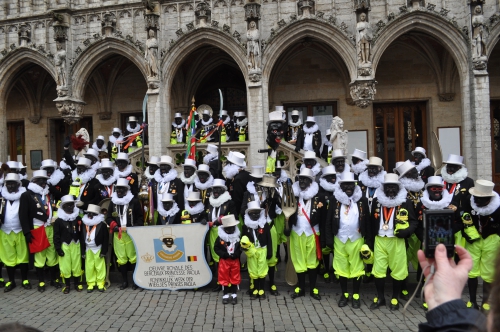

 del.icio.us
del.icio.us
 Digg
Digg
 The Regime in Washington is
The Regime in Washington is 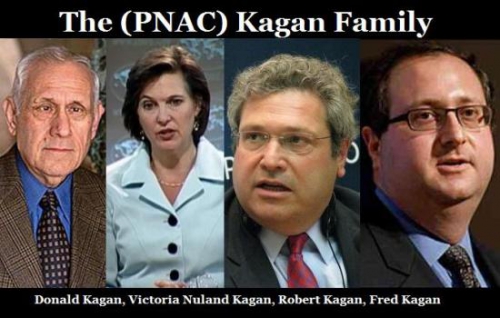
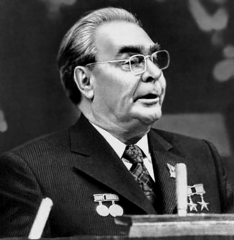 Brezhnevite language was recited by US Commissar for War Chuck Hagel during a surrealistic speech last October in which he claimed that the US and NATO “must deal with a revisionist Russia – with its modern and capable army – on NATO’s doorstep.”
Brezhnevite language was recited by US Commissar for War Chuck Hagel during a surrealistic speech last October in which he claimed that the US and NATO “must deal with a revisionist Russia – with its modern and capable army – on NATO’s doorstep.”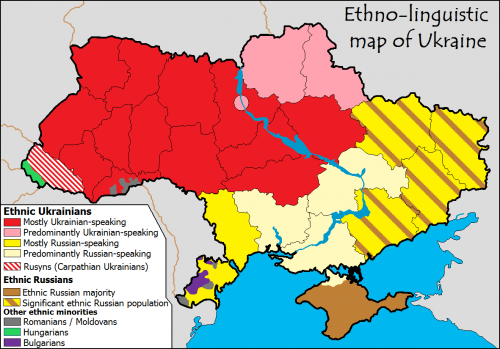



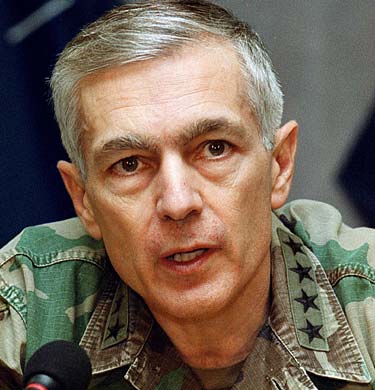 De nombreuses personnes connaissent le général Wesley Clark comme l’homme qui a quasiment déclenché la troisième Guerre mondiale, lorsqu’il a donné l’ordre aux Britanniques de tirer sur les forces de maintien de la paix russes qui avaient atterri à Pristina, la capitale du Kosovo, avant l’arrivée des Américains. On rapporte que le commandant britannique de la KFOR, le général Sir Mike Jackson, aurait répondu: «Je ne commencerai pas la troisième Guerre mondiale pour vous».
De nombreuses personnes connaissent le général Wesley Clark comme l’homme qui a quasiment déclenché la troisième Guerre mondiale, lorsqu’il a donné l’ordre aux Britanniques de tirer sur les forces de maintien de la paix russes qui avaient atterri à Pristina, la capitale du Kosovo, avant l’arrivée des Américains. On rapporte que le commandant britannique de la KFOR, le général Sir Mike Jackson, aurait répondu: «Je ne commencerai pas la troisième Guerre mondiale pour vous».
 Republikanische Parteien Irlands, wie etwa die „Sinn Fein“, können auf eine lange Geschichte des Kampfes um Unabhängigkeit zurückblicken. Seit dem Jahr
Republikanische Parteien Irlands, wie etwa die „Sinn Fein“, können auf eine lange Geschichte des Kampfes um Unabhängigkeit zurückblicken. Seit dem Jahr  Auch in Wales gab es kleinere Gruppen nationalistischer Separatisten. Zum einen existierte die „Free Wales Army“, die aus nur
Auch in Wales gab es kleinere Gruppen nationalistischer Separatisten. Zum einen existierte die „Free Wales Army“, die aus nur 
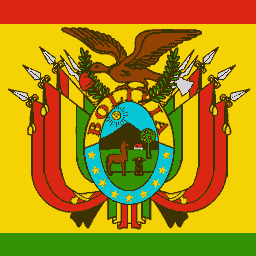 At least, this is how the story is related by Uruguayan author Eduardo Galeano,
At least, this is how the story is related by Uruguayan author Eduardo Galeano, 
